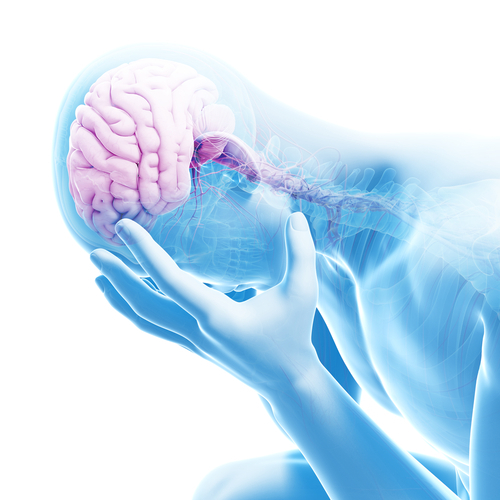Persistent depression alters brain
ANI Feb 27, 2018
According to a research conducted by Centre for Addiction and Mental Health, brain alters after years of persistent depression, suggesting the need to change how we think about depression as it progresses.

The study, led by senior author Dr. Jeff Meyer, showed that people with longer periods of untreated depression, lasting more than a decade, had significantly more brain inflammation compared to those who had less than 10 years of untreated depression.In an earlier study, Dr. Meyer's team discovered the first definitive evidence of inflammation in the brain in clinical depression.This study provides the first biological evidence for large brain changes in long-lasting depression, suggesting that it is a different stage of illness that needs different therapeutics - the same perspective taken for early and later stages of Alzheimer's disease, he said."Greater inflammation in the brain is a common response with degenerative brain diseases as they progress, such as with Alzheimer's disease and Parkinson´s disease," said Dr. Meyer.
While depression is not considered a degenerative brain disease, the change in inflammation shows that, for those in whom depression persists, it may be progressive and not a static condition.Yet currently, said Dr. Meyer, regardless of how long a person has been ill, the major depressive disorder is mainly treated with the same approach. Some people may have a couple of episodes of depression over a few years.Others may have persistent episodes over a decade with worsening symptoms, and increasing difficulty going to work or carrying out routine activities.In the study, brain inflammation was measured using a type of brain imaging called positron emission tomography (PET).
The brain's immune cells, known as microglia, are involved in the brain's normal inflammatory response to trauma or injury, but too much inflammation is associated with other degenerative illnesses as well as depression.When microglia are activated, they make more translocator protein (TSPO), a marker of inflammation that can be seen using PET imaging.The study involved 25 people with more than 10 years of depression, 25 with less than 10 years of illness, and 30 people with no depression as a comparison group.TSPO levels were about 30 percent higher in different brain regions among those with long-lasting untreated depression, compared to those with shorter periods of untreated depression. The group with long-term depression also had higher TSPO levels than those with no depression.The study is published online in the journal The Lancet Psychiatry.
-
Exclusive Write-ups & Webinars by KOLs
-
Daily Quiz by specialty
-
Paid Market Research Surveys
-
Case discussions, News & Journals' summaries